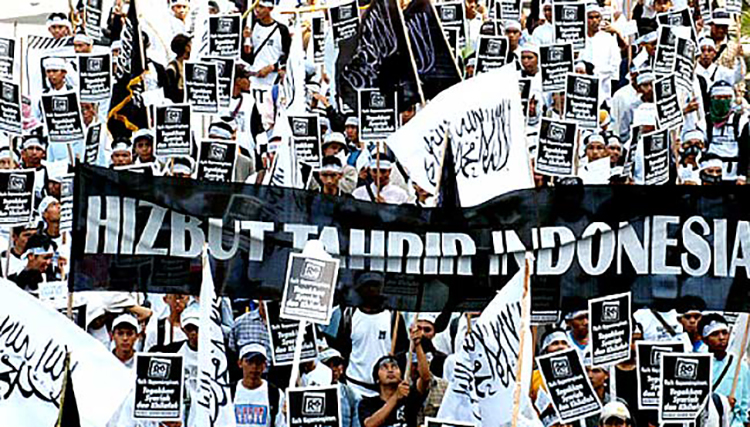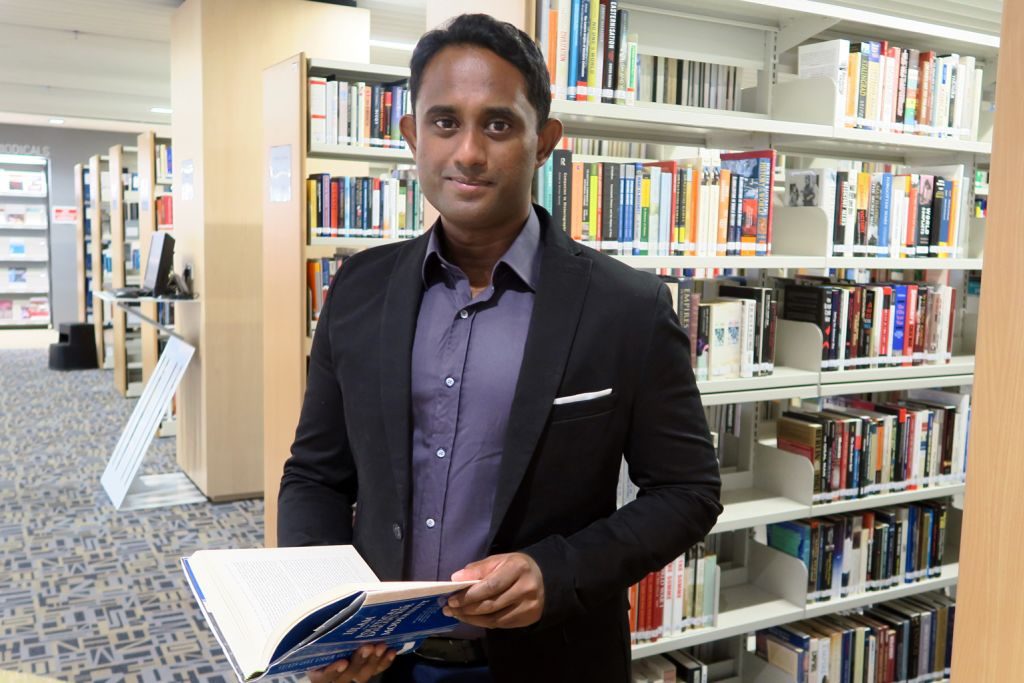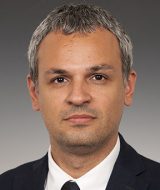
- 26 Jul 2018
[Political Economy Cluster] The Spectrum of Islamism in the Middle East and Southeast Asia
![]()
The NUS Middle East Institute and the S. Rajaratnam School of International Studies (NTU) were pleased to present a panel discussion on Islamism and its impact in the Middle East and in Southeast Asia. Experts drew upon case studies in Malaysia, Indonesia, Iraq as well as other countries in the contemporary Muslim world. A brief description of each panel presentation can be found below:
Hizb-ut-Tahrir and the Human Rights Agenda
By Mohamed Nawab Mohamed Osman
Dr Nawab explored how Hizb-ut-Tahrir (HT), a transnational Islamist movement seeking the establishment of the historical Caliphate use the human rights agenda to propound its position countries that the group exist in. In his seminal book, The New Political Islam: Human Rights, Democracy, and Justice, Emmanuel Karagiannis noted that the HT has embraced the master frame of human rights to propound its position globally. While agreeing with key tenet of Karagiannis’ assertion, this presentation offers a more nuanced analysis. By drawing on the political opportunity structure (POS) and framing strands of social movement theory, this presentation argued that the human rights frame is strategically employed in democratic and authoritarian political contexts but in fact an anti-human rights frame is used in hybrid political context such as in Malaysia and Indonesia.
Dominant Narratives around the 2018 Iraqi Presidential Elections: Sectarianism and Western Foreign Policy
By Enrica Fei
The 2018 Iraqi presidential elections offer very interesting material on the boundaries of Muslim sectarianism. Some alliances and candidates’ political moves have contradicted crucial assumptions that have dominated the academic literature on Iraq since 2003. The Shi’a cleric Moqtada al-Sadr, for instance – whose militia, the Mahdi Army, was active in the 2004-2008 Iraqi civil war following the invasion and allegedly committed atrocious sectarian crimes, frequently visited Riyadh in recent times and met with Saudi’s crown prince Mohammad Bin Salman to discuss security issues. Also, his Islamist party has joined forces with secularist groups linked to the Iraqi communist party. Such cross-sectarian electoral alliances arguably suggest that there has been a move from identity to issue-based politics. Yet, in the lead-up to the upcoming elections, many analysts have interpreted the current Iraqi political scene within a sectarian framework, and insisted that Western countries should interfere in the government-formation process to ensure a moderate coalition of Shi’a, Sunni and Kurdish elites. Moreover, they warned against the risk of an ‘Iranian-dominated’ Iraq following the elections. The current Iraqi political landscape, however, is quite diverse and the Iraqi parties’ regional allies are not confined to Iran – which enjoys good relations with some of them, but cannot be considered behind Iraqi politics as a whole. Ms Fei will analyse the production on the current Iraqi political unfolding coming from well established American and British think tanks, such as the Chatham House, the Royal United Services Institute, the Brookings Institution and the Atlantic Council. From this analysis she is able to identify certain dominant discourses – namely, sectarianism and the ‘Iranian-threat’, and the way academic production has ‘backed’ Western foreign policy making (by offering evidence, for instance, for the threat posed by Iran), and/or advised Western foreign-policy makers.
The Glocalisation of Islamism in the Middle East
By Emmanuel Karagiannis
Islamist political parties and groups are on the rise throughout the Muslim world and in Muslim communities in the West. Owing largely to the threat of terrorism, political Islam is often portrayed as a monolithic movement embodying fundamentalism and theocracy, an image magnified by the rise of populism and xenophobia in the United States and Europe. Reality, however, is far more complicated. Political Islam has evolved considerably since its spectacular rise decades ago, and today it features divergent viewpoints and contributes to discrete but simultaneous developments worldwide. This is a new political Islam, more global in scope but increasingly local in action. Many Islamists turn to activism, still more participate formally in the democratic process, and some, in far fewer numbers, advocate violence. Consequently, Islamist activists, politicians, and militants have utilized the language of human rights, democracy, and justice to gain influence and popular support and to contend for power.
About the Speakers

S.Rajaratnam School of International Studies,
NTU
Dr Enrica Fei,
Department of Arab and Islamic Studies,
University of Exeter
Assoc Prof Emmanuel Karagiannis,
Department of Defence Studies,
King’s College (London)
Mohamed Nawab Osman is the Coordinator of the Malaysia Program at the S.Rajaratnam School of International Studies, NTU. His research interests include the domestic and international politics of Southeast and South Asian countries, transnational Islamic political movements and counter-radicalization. Nawab has written various papers, books and journal articles relating to his research interests. He is the author of Hizbut Tahrir Indonesia: Identity, Ideology and Religo-Political Mobilisation (Oxfon: Routledge, 2018) and the editors of Pathways to Contemporary Islam (Notre Dame: Notre Dame University Press, 2018) and Islam and Peace-Building the Asia-Pacific (Singapore: World Scientific, 2017). Some of his articles have been featured in prominent journals such as Asian Security, Contemporary Islam, Journal of Muslim Minority Affairs, Islamophobia Studies, Sociology of Islam, Southeast Asia Research, South Asia, Terrorism and Political Violence, Studies in Conflict and Terrorism, Indonesia and the Malay World and Contemporary Southeast Asia. Several of his opinion pieces have been featured in leading dailies such as The Straits Times, India Express, The Nation (Thailand), Jakarta Post, Manila Times and Today’s Zaman (Turkey). Nawab is a frequent commentator on political Islam, terrorism and Southeast Asian politics on CNN, BBC, Al-Jazeera, TRT International and Channel News Asia.

Enrica Fei currently works at the Department of Arab and Islamic Studies, University of Exeter. She is a PhD fellow at the Institute of Arab and Islamic Studies (IAIS) of the University of Exeter. She is researching the Shi’a populous within the framework of 2000s empowerment, in Iraq, Iran and the Gulf monarchies. She holds an MA in International Relations from Ca’ Foscari University of Venice; an MA in Mediterranean Studies jointly from the Autonomous University of Barcelona, Ca’ Foscari University of Venice and Moulay Ismail University of Meknes; and a BA in Arabic and French Language and Literature from the University of Florence. PhD Supervisors: Professor Gareth Stansfield and Professor Marc Valeri.

Emmanuel Karagiannis is an Associate Professor at the Department of Defence Studies of King’s College London. He was educated in the United Kingdom (Hull University, Reading, London South Bank) and the United States (University of Pennsylvania). He held research positions in prestigious US and British universities (Yale University, Columbia University, Princeton University, London School of Economics). His new book The New Political Islam: Human Rights, Democracy and Justice has been published by the University of Pennsylvania Press. Also, he is the author of Political Islam in Central Asia (Routledge, 2010) and Energy and Security in the Caucasus (Routledge, 2002). His articles have appeared, among others, in Journal of North African Studies, Studies in Conflict and Terrorism, Terrorism and Political Violence, Journal of Southeast European and Black Sea Studies, Middle East Quarterly, Small Wars and Insurgencies, Contemporary Security Policy, Asian Security, European Security, Dynamics of Asymmetric Conflict, Mediterranean Politics, Mediterranean Quarterly, Harvard Asia Quarterly, Europe-Asia Studies, Nationalities Papers, Central Asian Survey, Nationalism and Ethnic Politics, and Journal of Balkans and Near Eastern Studies. Dr Karagiannis has travelled extensively throughout the Caucasus, Central Asia, and the Middle East to conduct research.
Event Details
Block B, 29 Heng Mui Keng Terrace
Singapore 119620




